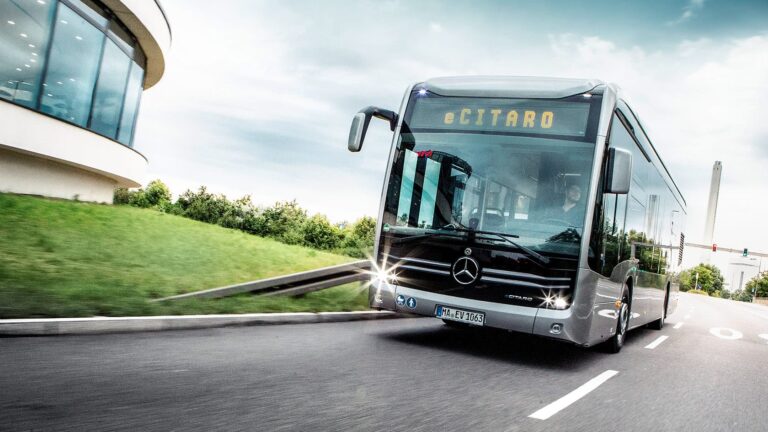The EU Commission has approved an increase of €300m (£254m) in Germany’s state aid for the purchase of electric buses and charging infrastructure under state aid law.
The German aid scheme is valid until the end of 2021.
With the subsidies, the federal government intends to cover the additional costs for the purchase of electric buses compared to diesel buses and the establishment of the necessary charging infrastructure.
The total state funding for this now amounts to €650m (£550m).
In Germany, the Federal Environment Ministry (BMU) handles the subsidies. The ministry subsidises up to 80% of the additional costs in the purchase price for an electric bus compared to a diesel model.
The remaining expenditure, for example for the charging infrastructure, is subsidised by 40%.

At the beginning of December 2019, the ministry announced that 16 projects with a funding volume of more than €250m (£211m) have currently been approved.
The original funding was approved in 2018.
According to the EU Commission, the German plans are in line with the union’s state aid rules and the aid scheme will help to reduce CO2 emissions “without unduly distorting competition”.
German public transport operators have used the subsidy to purchase buses from all over Europe, as well from German manufacturers including Mercedes with the eCitaro and MAN with the Lion’s City E.
The EU Commission said that the state aid scheme “provides an incentive for bus operators to invest more in this type of vehicle and the necessary charging infrastructure”.
Overall, Brussels expects an increase in funding to save around 45,000 tonnes of CO2 equivalents per year, with nitrogen oxide emissions to be reduced by about 17 tonnes per year.
 Want to learn more about the latest advances in electric vehicles? CiTTi Exhibition takes place on the 3rd and 4th of June at Coventry’s Ricoh Arena. Register your interest to attend at www.cittiexhibition.co.uk
Want to learn more about the latest advances in electric vehicles? CiTTi Exhibition takes place on the 3rd and 4th of June at Coventry’s Ricoh Arena. Register your interest to attend at www.cittiexhibition.co.uk





